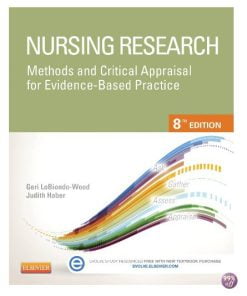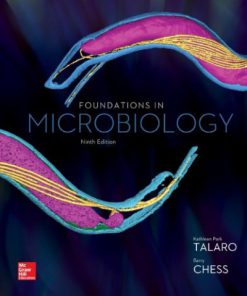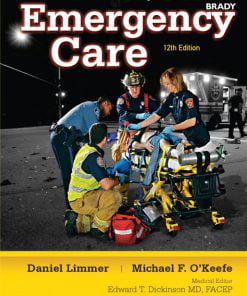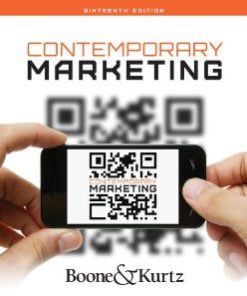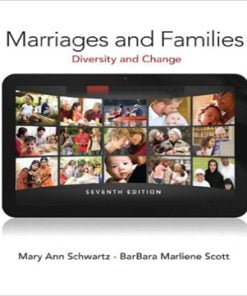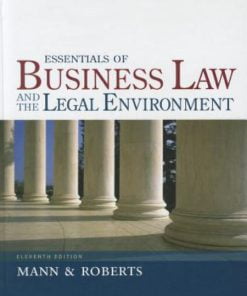Life-Span Human Development Sigelman 8th Edition Test Bank
$35.00 Original price was: $35.00.$26.50Current price is: $26.50.
Life-Span Human Development Sigelman 8th Edition Test Bank
This is completed downloadable of Life-Span Human Development Sigelman 8th Edition Test Bank
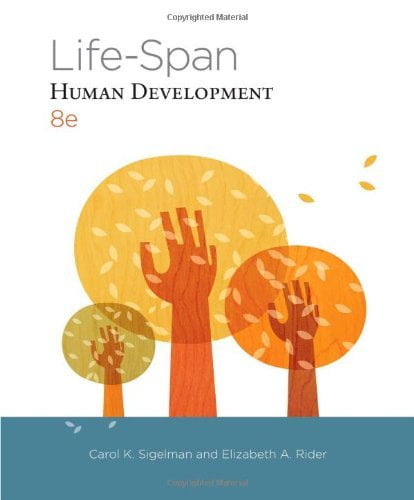
Product Details:
- ISBN-10 : 1285454316
- ISBN-13 : 978-1285454313
- Author: Carol K. Sigelman, Elizabeth A. Rider
Known for its clear, straightforward writing style, comprehensive coverage, strong and current research-based approach, and excellent visuals and tables, this life-span development text offers a topical organization at the chapter level and a consistent chronological presentation within each chapter. Each chapter focuses on a domain of development such as physical growth, cognition, or personality, and traces developmental trends and influences in that domain from infancy to old age. Within each chapter, you will find sections on four life stages: infancy, childhood, adolescence, and adulthood. This unique organization enables students to comprehend the processes of transformation that occur in key areas of human development. Another staple of the text is its emphasis on theories and how they apply to specific topics in each chapter. This new edition also provides ways for you to engage more actively with the content, and includes a clear focus on the complex interactions of nature and nurture in development, more integrated coverage of culture and diversity, and an exciting new media package for both students and instructors.
Table of Content:
- Ch 1: Understanding Life-Span Human Development
- 1.1: How Should We Think about Development?
- 1.2: What is the Science of Life-Span Development?
- 1.3: How is Development Studied?
- 1.4: What Special Challenges Do Developmental Scientists Face?
- Chapter Summary
- Key Terms
- Ch 2: Theories of Human Development
- 2.1: Developmental Theories and the Issues They Raise
- 2.2: Freud: Psychoanalytic Theory
- 2.3: Erikson: Neo-Freudian Psychoanalytic Theory
- 2.4: Learning Theories
- 2.5: Piaget: Cognitive Developmental Theory
- 2.6: Systems Theories
- 2.7: Theories in Perspective
- Chapter Summary
- Key Terms
- Ch 3: Genes, Environment, and Development
- 3.1: Evolution and Species Heredity
- 3.2: Individual Heredity
- 3.3: Studying Genetic and Environmental Influences
- 3.4: Selected Findings
- 3.5: Genes and Environment Conspiring
- Chapter Summary
- Key Terms
- Ch 4: Prenatal Development and Birth
- 4.1: Prenatal Development
- 4.2: The Prenatal Environment and Fetal Programming
- 4.3: The Perinatal Environment
- 4.4: The Neonatal Environment
- Chapter Summary
- Key Terms
- Ch 5: Body, Brain, and Health
- 5.1: Building Blocks of Growth and Lifelong Health
- 5.2: The Infant
- 5.3: The Child
- 5.4: The Adolescent
- 5.5: The Adult
- Chapter Summary
- Key Terms
- Ch 6: Sensation, Perception, and Action
- 6.1: Perspectives on Perception
- 6.2: The Infant
- 6.3: The Child
- 6.4: The Adolescent
- 6.5: The Adult
- Chapter Summary
- Key Terms
- Ch 7: Cognition
- 7.1: Piaget’s Constructivist Approach
- 7.2: Vygotsky’s Sociocultural Perspective
- 7.3: Fischer’s Dynamic Skill Framework
- 7.4: The Infant
- 7.5: The Child
- 7.6: The Adolescent
- 7.7: The Adult
- Chapter Summary
- Key Terms
- Ch 8: Memory and Information Processing
- 8.1: Conceptualizing Memory
- 8.2: The Infant
- 8.3: The Child
- 8.4: The Adolescent
- 8.5: The Adult
- Chapter Summary
- Key Terms
- Ch 9: Intelligence and Creativity
- 9.1: Defining Intelligence and Creativity
- 9.2: The Infant
- 9.3: The Child
- 9.4: The Adolescent
- 9.5: The Adult
- 9.6: Factors That Influence IQ Scores over the Life Span
- 9.7: The Extremes of Intelligence
- Chapter Summary
- Key Terms
- Ch 10: Language and Education
- 10.1: The System of Language
- 10.2: The Infant
- 10.3: The Child
- 10.4: The Adolescent
- 10.5: The Adult
- Chapter Summary
- Key Terms
- Ch 11: Self and Personality
- 11.1: Conceptualizing the Self and Personality
- 11.2: The Infant
- 11.3: The Child
- 11.4: The Adolescent
- 11.5: The Adult
- Chapter Summary
- Key Terms
- Ch 12: Gender Roles and Sexuality
- 12.1: Sex and Gender
- 12.2: The Infant
- 12.3: The Child
- 12.4: The Adolescent
- 12.5: The Adult
- Chapter Summary
- Key Terms
- Ch 13: Social Cognition and Moral Development
- 13.1: Social Cognition
- 13.2: Perspectives on Moral Development
- 13.3: The Infant
- 13.4: The Child
- 13.5: The Adolescent
- 13.6: The Adult
- Chapter Summary
- Key Terms
- Ch 14: Emotions, Attachment, and Social Relationships
- 14.1: Emotional Development
- 14.2: Perspectives on Relationships
- 14.3: The Infant
- 14.4: The Child
- 14.5: The Adolescent
- 14.6: The Adult
- Chapter Summary
- Key Terms
- Ch 15: The Family
- 15.1: Understanding the Family
- 15.2: The Infant
- 15.3: The Child
- 15.4: The Adolescent
- 15.5: The Adult
- 15.6: Diverse Family Experiences
- 15.7: The Problem of Family Violence
- Chapter Summary
- Key Terms
- Ch 16: Developmental Psychopathology
- 16.1: What Makes Development Abnormal?
- 16.2: The Infant
- 16.3: The Child
- 16.4: The Adolescent
- 16.5: The Adult
- Chapter Summary
- Key Terms
- Ch 17: The Final Challenge: Death and Dying
- 17.1: Matters of Life and Death
- 17.2: The Experience of Death
- 17.3: The Infant
- 17.4: The Child
- 17.5: The Adolescent
- 17.6: The Adult
- 17.7: Taking the Sting out of Death
- Chapter Summary
- Key Terms
- Appendix A: Careers in Human Development
- Research
- Teaching
- Professional Practice
- Resources
- Appendix B: Checking Mastery Answers
- Glossary
- References
- Name Index
- Subject Index
People Also Search:
human development a life-span view 8th edition pdf reddit
human development a life-span view 8th edition
human development a life-span view 8th edition citation
life span theories of human development
Related products
Test Bank
Test Bank for Essentials of Business Law and the Legal Environment, 11th Edition: Richard A. Mann





